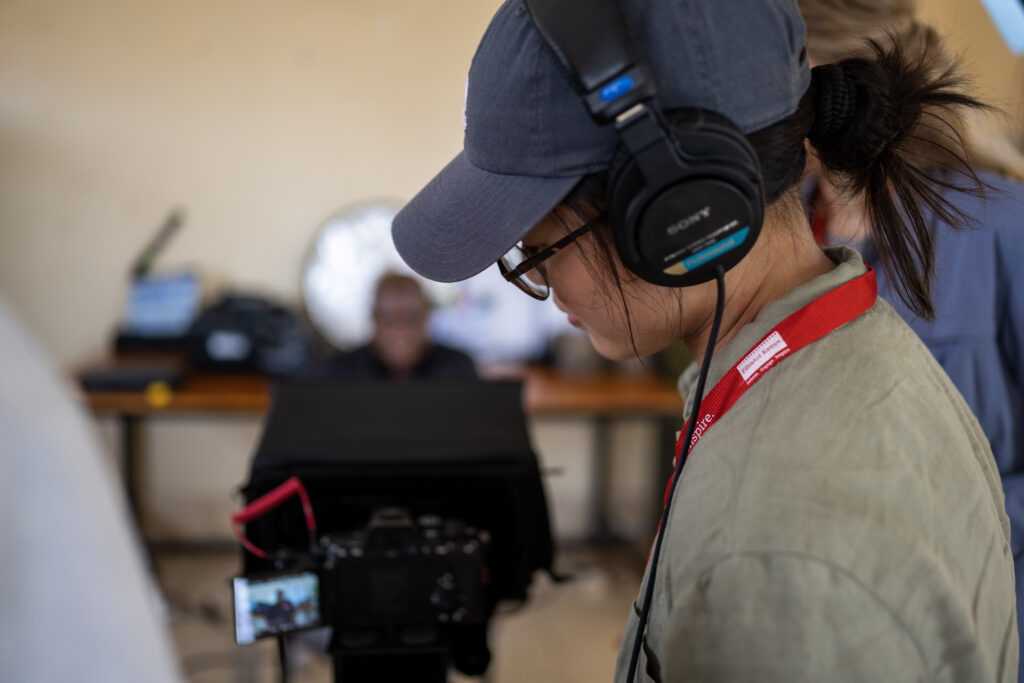Filipina filmmaker is pushing the boundaries of film, technology and science
LOS ANGELES – Less than a year out of college, Filipina filmmaker Julia Ongchoco is slowly but surely making her mark in New York, the vibrant city that never sleeps.
Ongchoco currently works as an associate producer and software specialist at Library Films, the Emmy-award winning production outfit behind popular documentaries like “Bad Vegan,” “Tiger King,” “100 Foot Wave” and “Branson.”
Introducing automation and AI at Library Films

While in college, Julia Ongchoco worked with Kenyan refugee filmmakers to bring film studies to the refugees of the Kakuma Camp. Photo from Peter Decherney
Ongchoco has been involved in several projects currently showing on Netflix and HBO on the production side.
Additionally, she has brought unique value to Library Films, specifically the development of software systems that has led to large manpower productivity and efficiency improvements, as well as cost savings for the company.
This includes the automation of archival footage into cue sheets – which used to be a tedious and laborious task within Library Films. It’s now automated and simplified across a broad range of the company’s projects.
Ongchoco has created a web application that connects Library Films’ camera crew on the field, from as far as Portugal, to staff in their New York office.
She has also introduced automation in the tracking of footage and equipment inventory, as well as formatting and generation of film transcripts.
Finding the intersection of art and science
Independently, Ongchoco continues to produce and direct short films. One of her films, “Grid,” has won the Sachs Grant Award for Arts Innovation. It continues to be selected for screening in various international conferences and festivals, such as the Visual Science of Art Conference held in Cyprus and, just recently, the Indie Short Fest in LA.
She is now working on a follow-up project, titled “Light,” and plans to do more short films about how art and cognitive science intersect, with the goal of eventually presenting them as a series.
Prior to joining Library Films, Ongchoco graduated summa cum laude from the University of Pennsylvania, where she studied cognitive science and theatre arts, and was awarded the Robert J Glushko Cognitive Science prize.
While in college, she worked with Kenyan refugee filmmakers to bring film studies to the refugees of the Kakuma camp.
Ongchoco said this experience was crucial in her post-college pursuit of finding the intersection of art and science through film.

